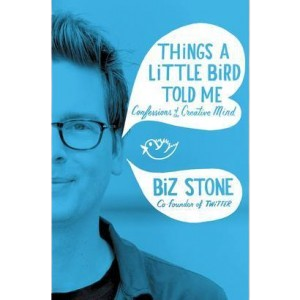
Okurken insanın ruh halini değiştirmeyi başardığı için başarılı bulduğum roman. Raif Bey’in notlarını okumaya başlayana kadar olanı kısımı atlatabilirseniz gerisi çok sürükleyici. Aşk üzerine bir roman okumak istiyorsanız ve üzülmeyi göze alıyorsanız tavsiye ederim.
“Ben bu yazıyı yazmak için bile tam 26 yıl bekledim, bundan sonra otobüs bile beklemem” diyor Fulsen. Yaş ilerledikçe, ister istemez insanın acelesi artıyor, dolayısıyla tahammülü azalıyor.
Hayat yolculuğunda öğrendiğim doğrular, keşfettiğim için kendimi şanslı hissettiklerimi paylaşmak istiyorum. Birkaç yıl önce bunların çoğunun farkında değildim, kimbilir şimdi farkında olmadığım daha neler var? Onları da sizlerden duymak istiyorum.
1) Hayat dediğimiz şey, trade-offlardan ibaret
Mühendisliğin temelinde, “trade-off” kavramı var. Mesela yeri geldi mi uygulamanın daha fazla hafıza kullamasına izin veriyoruz ki daha hızlı çalışsın. Hayatta da birşeyleri elde etmek için başka şeylerden vazgeçmek gerekiyor. Türkiye’de yaşarken bu kadar belirgin değil fakat Amerika’da trade-offlar çok net karşıma çıktı:

Logicomix is a comic book about British philosopher Russel Bertrand’s life and his quest to form the foundations of mathematics.
It covers heavy subjects such as boolean logic, set theory, Russel’s paradox and incompleteness theorem in a light format: a comic book. It reminded me how powerful and entertaining visual story telling is and how books, comics, movies and photography are all different forms of story telling.
The book takes place during the Second World War and covers Russel Bertrand’s personal life, his upbringing, his academic work such as Principia Mathematica and Russell’s paradox.
This video is full of gems:
I’ve never found anyone who said no or hung up the phone when I called.
I just asked.
You gotta act. Most people never pickup the phone and call, most people never ask.
That’s what separates the people who do things from the ones that dream about them.
You gotta act.
You gotta be willing to fail, crash and burn. If you’re afraid of failing, you won’t get very far…

Zero to One is a recollection of notes from Peter Thiel’s lectures on startups and entrepreneurship at Stanford University. Peter Thiel is on the board of directors of Facebook and his thoughts influence Facebook executives and the tech industry.
The book starts with Peter Thiel’s favorite interview question: “What important truth do very few people agree with you on?”. The business version of this question is: “What valuable company is nobody building?”

“Things A Little Bird Told Me” is Twitter co-founder Biz Stone’s autobiography. It focuses mostly on his career, starting from designing book jackets to working for Blogger with Evan Williams. It talks about his time at Odeo, why they failed, and how Twitter was born out of a hackathon at Odeo as the company was looking for a buyer. Most of the book is about early days of Twitter, from initial traction at SXSW to getting a $500 million acquisition offer from Facebook and power plays at Twitter’s board of directors about previous CEOs Jack Dorsey and Evan Williams.

Romanda anlatılanlar kadar, kullanılan dil ve üslup da keyif verdiği için Türkiye’deyken anlatımından zevk alabileceğim Türkçe bir roman arayışına giriştim. Masumiyet Müzesi’nden çokça memnun kaldığım için havaalanından Orhan Pamuk’un “Benim Adım Kırmızı” kitabını alarak ayrıldım.
İnsanların kitapları ilk satırlarını okuyarak satın almaya karar verdiğine olan inancından mıdır bilinmez, Orhan Pamuk’un giriş cümlelerine özel bir dikkat gösterdiğini düşünürüm. Benim Adım Kırmızı da, “Şimdi bir ölüyüm ben, bir ceset, bir kuyunun dibinde.” cümlesiyle başlıyor. Detaylı tasvirler ve uzun anlatımlar barındıran 500 sayfalık bu kitap kolay okunuyor diyemem ama hikayedeki merak öğesi insanın heyecanını korumaya yetiyor ve hızlıca bitirilmesine yardımcı oluyor.

Ben Horowitz is a successful figure in tech industry, I was curious to read what he had to say without even knowing what his book was about. Turns out, it’s meant to be a guide for CEOs. Nevertheless, it helped me understand why certain things are the way they are in my current company. It contains lessons he learned from his time at Netscape and Opsware. Here are some highlights:
I first learned about Positive Psychology when a class on this subject became the most popular course among undergraduate students at Harvard University seven years ago. Since then, this subject gained popularity in the media and there have been many books written about it due to its appeal to a wide audience. I’ve been reading and learning more on this subject through the years because my goal in life is to be happy. I found it interesting that this field in psychology only started 15 years ago, before then psychology focused on mental illnesses instead of finding ways to make normal life more fulfilling.

Humans of New York is a project by Brandon Stanton to capture New Yorkers and tell their stories, apparently this book is the result of 3 years of work for that project.
In the beginning of the book, Brandon briefly tells his story. When he was fired from his job as a bond trader, he decided to try being a photographer.
I had enjoyed my time as a trader, but the end goal was always money. Two years of my life were spent obsessing over money, in the end I had nothing to show for it. I wanted to spend the next phase of my life doing work that I valued as much as the reward.







